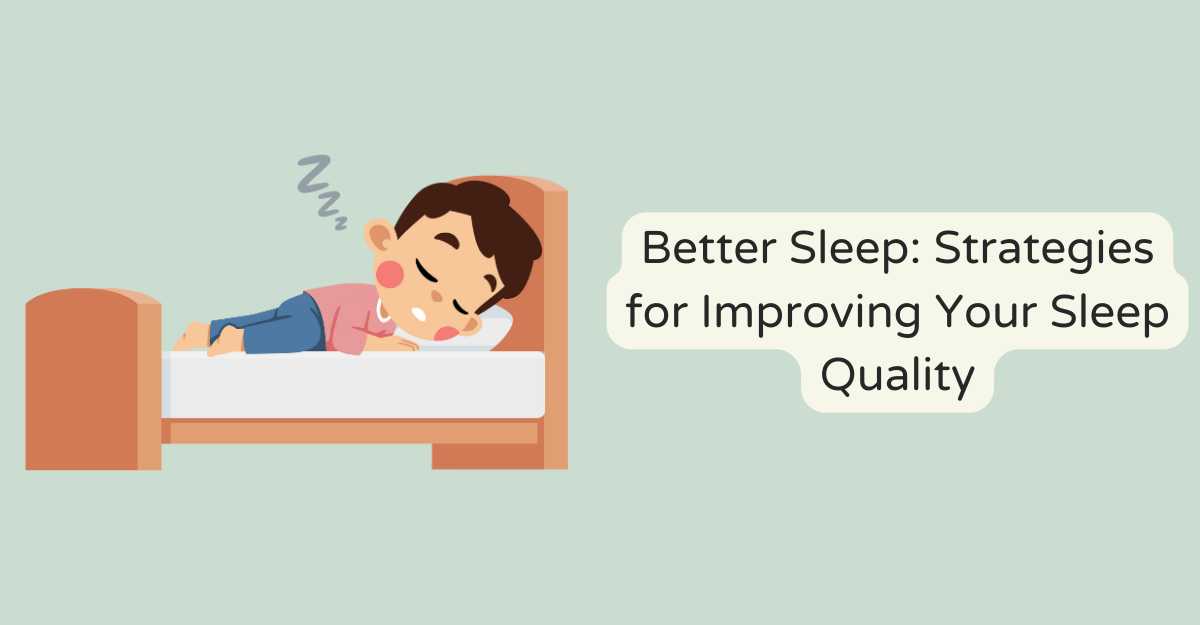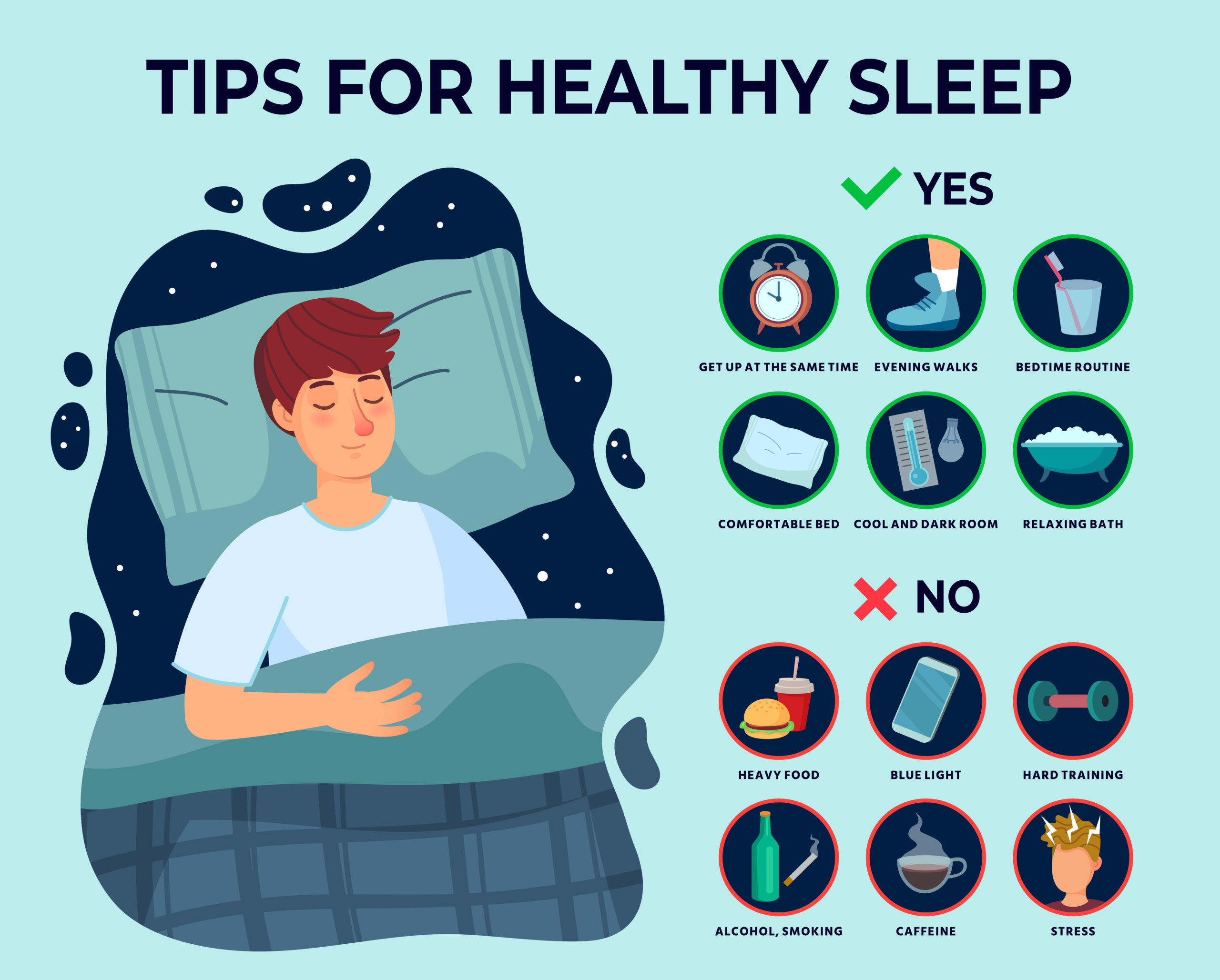Lifestyle modifications for better sleep quality: A Comprehensive Guide

Exploring the realm of lifestyle modifications for better sleep quality, this article delves into the crucial aspects of improving sleep through simple yet effective changes. From diet and nutrition to stress management, discover how small tweaks can lead to a significant improvement in your sleep patterns.
Lifestyle modifications for better sleep quality
Improving sleep quality is essential for overall health and well-being. Lifestyle modifications play a crucial role in achieving restful and rejuvenating sleep.
Factors that can negatively impact sleep
- High stress levels
- Poor diet and eating habits
- Lack of physical activity
- Excessive screen time before bed
Lifestyle changes to promote better sleep
- Establishing a consistent sleep schedule
- Creating a relaxing bedtime routine
- Avoiding caffeine and heavy meals before bedtime
- Creating a comfortable sleep environment
Relationship between lifestyle habits and sleep patterns
Healthy lifestyle habits such as regular exercise, balanced diet, and stress management can positively impact sleep patterns. Consistent sleep hygiene practices can lead to improved overall sleep quality and duration.
Diet and nutrition

Proper diet and nutrition play a crucial role in improving sleep quality. The foods we consume can impact our sleep patterns and overall restfulness.
Foods that aid in better sleep
Eating certain foods can promote better sleep by helping to regulate hormones and neurotransmitters that control our sleep-wake cycle. Some examples include:
- Foods rich in tryptophan such as turkey, nuts, and seeds
- Fruits like bananas and cherries that contain melatonin
- Whole grains like oats and rice that can aid in promoting sleep
Effects of caffeine, alcohol, and heavy meals on sleep
- Caffeine: Consuming caffeine close to bedtime can disrupt sleep patterns and make it harder to fall asleep.
- Alcohol: While alcohol may initially make you feel drowsy, it can disrupt the later stages of sleep, leading to poor quality rest.
- Heavy meals: Eating large, heavy meals close to bedtime can cause indigestion and discomfort, making it difficult to sleep peacefully.
Timing of meals for optimal sleep
Eating the right foods at the right time can significantly impact your sleep quality. It is recommended to:
- Avoid heavy meals at least 2-3 hours before bedtime to allow for proper digestion.
- Opt for light snacks if you feel hungry closer to bedtime to avoid discomfort.
- Choose foods that promote relaxation and calmness to help prepare your body for sleep.
Physical activity and exercise
Regular physical activity and exercise play a crucial role in promoting better sleep quality. Engaging in physical activities can help regulate your sleep patterns, improve sleep duration, and enhance overall sleep quality.
Impact of regular exercise on sleep quality
Regular exercise has been shown to improve sleep quality by increasing the production of endorphins, which are chemicals in the brain that act as natural painkillers and mood elevators. Exercise also helps reduce symptoms of anxiety and depression, which are common contributors to sleep disturbances.
Best types of exercises for promoting better sleep
- Aerobic exercises such as walking, running, cycling, or swimming are excellent choices for promoting better sleep. Aim for at least 150 minutes of moderate aerobic exercise per week.
- Strength training exercises using weights or resistance bands can also improve sleep quality by helping to regulate your sleep-wake cycle.
- Yoga and stretching exercises can promote relaxation and reduce stress, making it easier to fall asleep and stay asleep throughout the night.
Timing of exercise in relation to bedtime for improved sleep
Engaging in moderate exercise earlier in the day can help improve sleep quality by promoting relaxation and reducing stress. However, vigorous exercise close to bedtime may have a stimulating effect on the body, making it harder to fall asleep. Aim to finish your workout at least 2-3 hours before bedtime to allow your body to cool down and prepare for sleep.
How physical activity can reduce stress and aid in relaxation for better sleep
Regular physical activity can help reduce levels of the stress hormone cortisol in the body, leading to a calmer mind and improved relaxation. Exercise also promotes the release of endorphins, which are natural mood enhancers that can help alleviate stress and anxiety, ultimately leading to better sleep quality.
Sleep environment

Creating an ideal sleep environment is crucial for achieving better sleep quality. Factors such as comfort, darkness, quietness, and temperature play a significant role in promoting restful sleep.
The importance of a comfortable mattress, pillows, and bedding
Having a comfortable mattress that supports your body and aligns your spine is essential for a good night's sleep. Similarly, choosing the right pillows and bedding that suit your preferences and promote relaxation can enhance your overall sleep quality.
Tips for creating a dark, quiet, and cool sleep environment
- Invest in blackout curtains or eye masks to block out light and create a dark sleeping environment.
- Use earplugs or white noise machines to reduce noise disturbances and promote a quiet sleep environment.
- Keep the temperature in your bedroom cool, ideally between 60-67 degrees Fahrenheit, to facilitate better sleep.
Reducing noise and light pollution for enhanced sleep quality
Exposure to excessive noise and light pollution can disrupt your sleep patterns and affect the overall quality of your rest. By minimizing these disturbances in your sleep environment, you can improve your chances of experiencing uninterrupted and restorative sleep.
Stress management
Stress can have a significant impact on our sleep quality, making it difficult to fall asleep and stay asleep throughout the night. When we are stressed, our bodies release cortisol, a stress hormone that can interfere with our natural sleep-wake cycle.
This can lead to insomnia, fragmented sleep, or waking up feeling unrested.
Effective stress management techniques
- Practice mindfulness: Engage in activities that promote mindfulness such as meditation, deep breathing exercises, or yoga. These practices can help calm the mind and reduce stress levels before bedtime.
- Establish a relaxation routine: Create a bedtime routine that includes relaxing activities like reading a book, taking a warm bath, or listening to calming music. This can signal to your body that it's time to unwind and prepare for sleep.
- Avoid stimulants: Limit consumption of caffeine, nicotine, and alcohol, especially in the hours leading up to bedtime. These substances can increase feelings of anxiety and disrupt sleep patterns.
Role of mindfulness, meditation, and relaxation exercises
- Mindfulness: Practicing mindfulness involves staying present in the moment and focusing on your thoughts and feelings without judgment. This can help reduce racing thoughts and promote relaxation before bedtime.
- Meditation: Regular meditation practice can help calm the mind, reduce stress, and improve overall sleep quality. Guided meditation sessions or using meditation apps can be beneficial for beginners.
- Relaxation exercises: Techniques such as progressive muscle relaxation, visualization, or guided imagery can help relax the body and mind, making it easier to fall asleep and stay asleep.
Tips for reducing anxiety and worries before bedtime
- Keep a worry journal: Write down any anxious thoughts or worries before bedtime to help clear your mind and prevent rumination. This can help you address your concerns during the day rather than letting them keep you up at night.
- Practice gratitude: Focus on positive thoughts and things you are grateful for before bedtime. This can shift your mindset from worries to a more positive outlook, promoting relaxation and better sleep.
- Avoid screens: Limit exposure to screens such as phones, tablets, or computers before bed, as the blue light emitted can interfere with melatonin production and disrupt sleep. Opt for calming activities instead.
Wrap-Up

In conclusion, incorporating these lifestyle modifications can pave the way for a restful and rejuvenating night's sleep. By understanding the impact of diet, exercise, sleep environment, and stress management on your rest, you can take proactive steps towards achieving better sleep quality.
Here's to a good night's sleep ahead!
Common Queries
Can lifestyle modifications really improve sleep quality?
Yes, making simple changes to your daily routine and habits can have a significant positive impact on your sleep quality.
How does stress affect sleep, and what can I do about it?
Stress can disrupt sleep patterns. Effective stress management techniques such as mindfulness and relaxation exercises can help alleviate stress and improve sleep.
What role does physical activity play in improving sleep quality?
Regular exercise can promote better sleep. Engaging in activities like yoga or walking can help you relax and prepare for a good night's rest.

